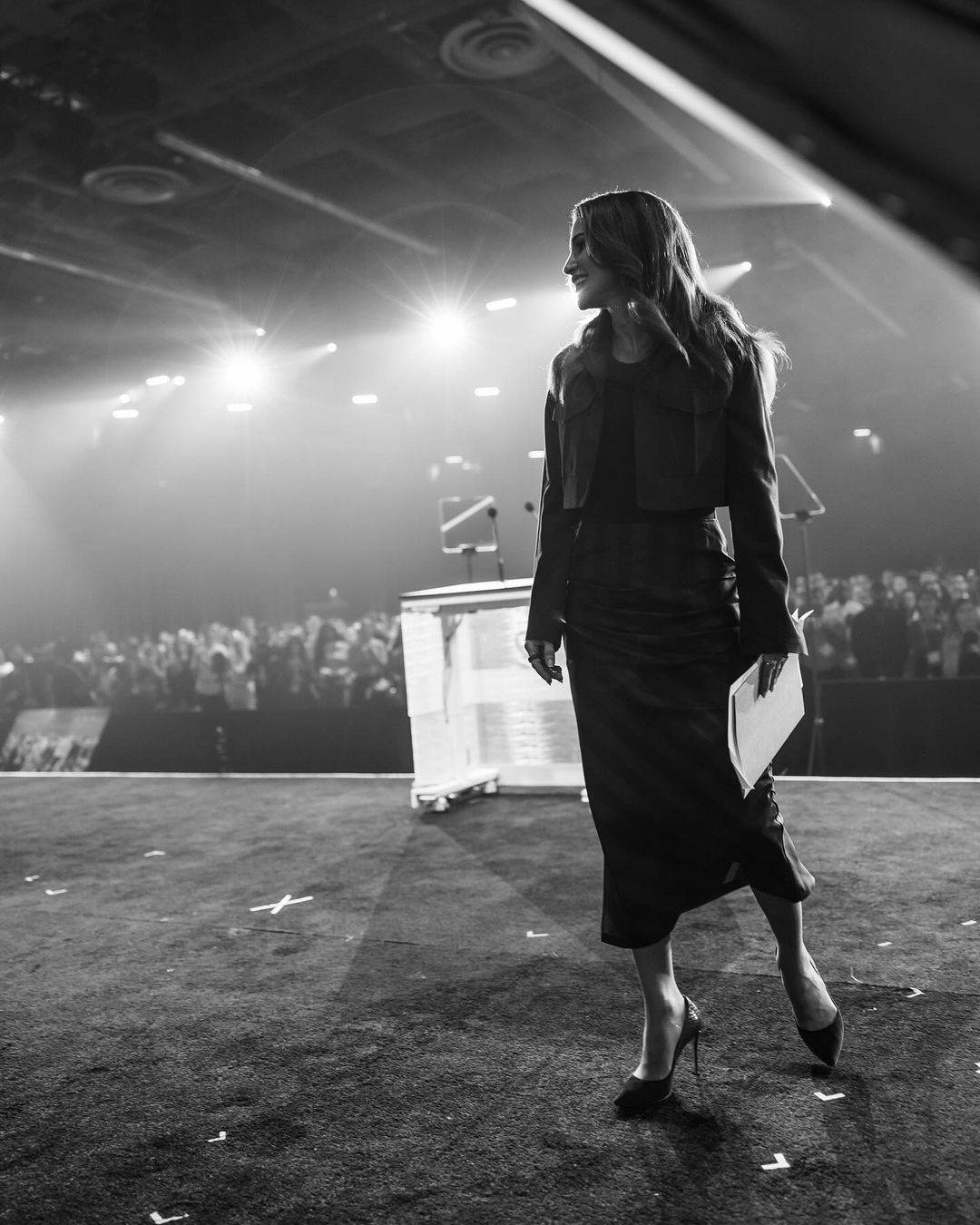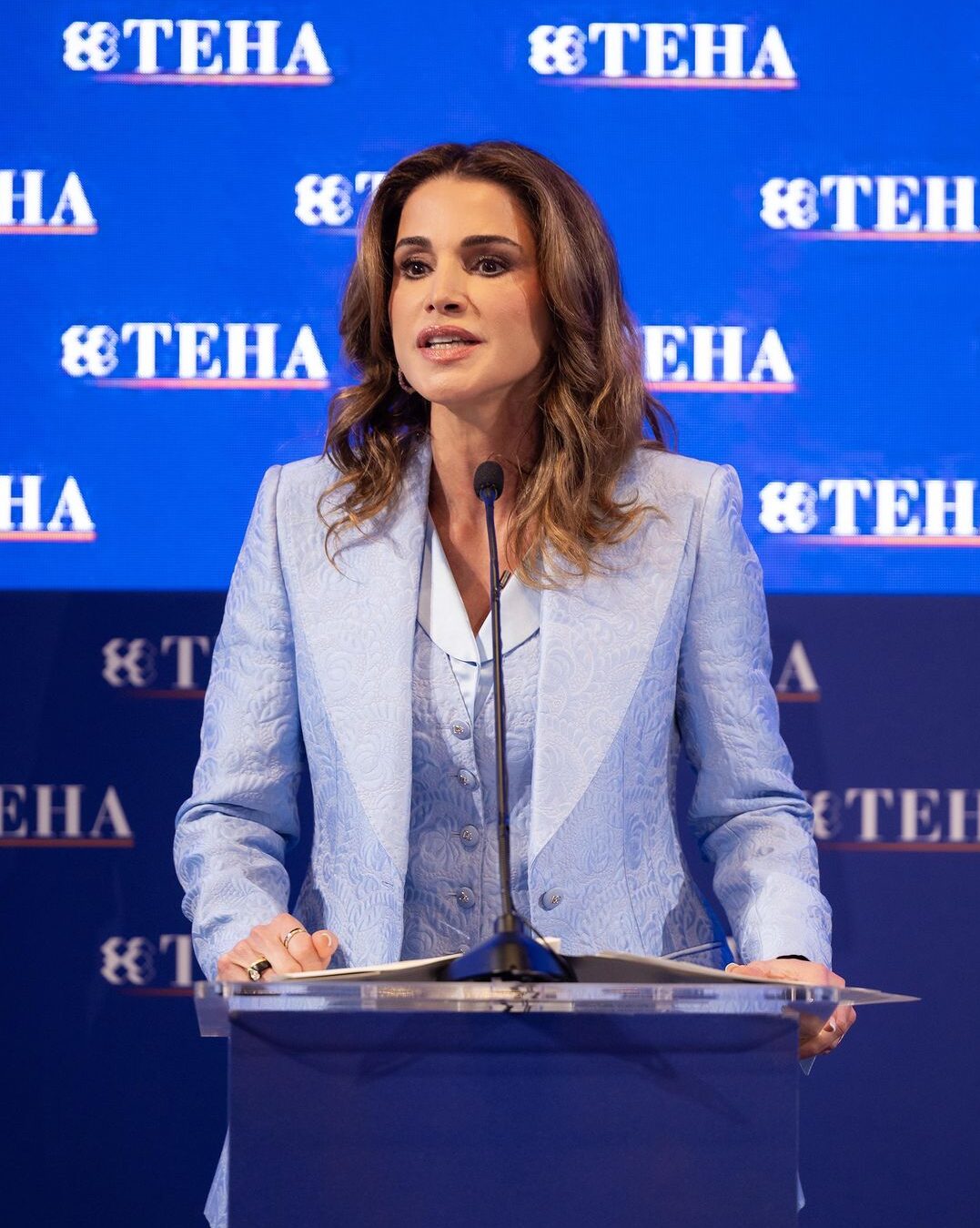Newsfeed

Over the weekend Her Majesty Queen Rania of Jordan crossed the geographical boundaries to highlight the ongoing catastrophes in Gaza.
As devastating death tolls and injuries continue to increase, the Jordanian Royal family has not only been sanctioning donation support or speeches to provoke change. Taking matters into their own hands, they have exerted their utmost capabilities to encourage ceasefires and even peace treaties.
Taking the stage at One Young World Summit in Montreal, Queen Rania has cautioned the youth not only to hope but also to demand a different action to help the people of Palestine.
“This war has done more than set the Gaza Strip back generations,” Her Majesty said on Saturday evening. “It is also dragging the rest of the world back to a level of lawlessness best left to the archives of history.”
“Worse yet, by sanctioning it – by continuing to provide military, economic, and diplomatic cover to the proprietors – many global powers are sending a chilling message about our future: that this is the shape of wars to come,” she added.
Calling for peace, “built on universal respect for dignity, decency, and self-determination,” Queen Rania explained that this can only be achieved by addressing the occupation of Palestine, which she described as the root of the conflict.
She continued to portray the destruction and displacement that struck Gaza, where two-thirds of infrastructures have been damaged and destroyed, and nine out of ten people have been displaced at least once.
“Imagine, nearly 2 million people – more than the population of the city of Montreal – fleeing for their lives with little more than the clothes on their backs and their traumatized children in their arms,” the Queen urged.
She encouraged the world’s youth to learn about the history of the conflict and try to understand the reality of Palestinians’ lives under occupation.
“Peace is not a matter of chance. Peace, like hope, is a matter of choice – one our world has failed to make for far too long,” the Queen stated. “It is time to choose another way. And your generation can help pave it.”
The Jordan Royal Family at The United Nations General Assembly
Prior to the One Young World Summit, His Majesty King Abdullah II, Her Majesty Queen Rania, and their youngest, Prince Hashem, also went to New York, Manhattan to join the yearly discussion held by the United Nations.
Opting for a Bottega Veneta printed viscose dress and small solstice bag, the Queen visited the Rockefeller Centre where the General Assembly was held.
During the meeting, King Abdullah II cautioned about the escalation of the devastation, noting the human rights issue and an immediate lasting ceasefire to occur.
Queen Rania Stands Firm On Her Support For Gaza

This is not the first time she made statements that made waves in social media and used her voice to break boundaries. As the conflict nears its one year, the Jordanian royal has ensured that her platform never stops running to spread awareness.
And her recent visit to Italy proved her steadfast commitment to change the narrative remains headstrong.
She took the stage at the 50th edition of the Ambrosseti Forum, an annual conference organised by the European House, and delivered a powerful speech on the ongoing crises in Palestine.
In her speech, Queen Rania expressed her distress over the normalisation of civilian suffering. “Try to imagine what it must be like to be a parent in Gaza,” she urged. From meagre food rations, burying children, severe starvation and a ceasefire that never comes, Queen Rania exemplified that the world is simply not doing enough to provoke change.
“Autonomy, dignity and human rights are universal, unconditional, and non-negotiable.” As she declared her message, she consistently stressed that for “justice to prevail, there must be accountability.”
As she closed her speech, she powerfully left no room for second thoughts. “This is a vile breach of decent human conduct,” she said.
Additionally, she mentioned that life will never be the same as it was. “We cannot go back to the days before this war. As we ask, ‘What’s next?’, the answer cannot be, ‘More of the same.’”








